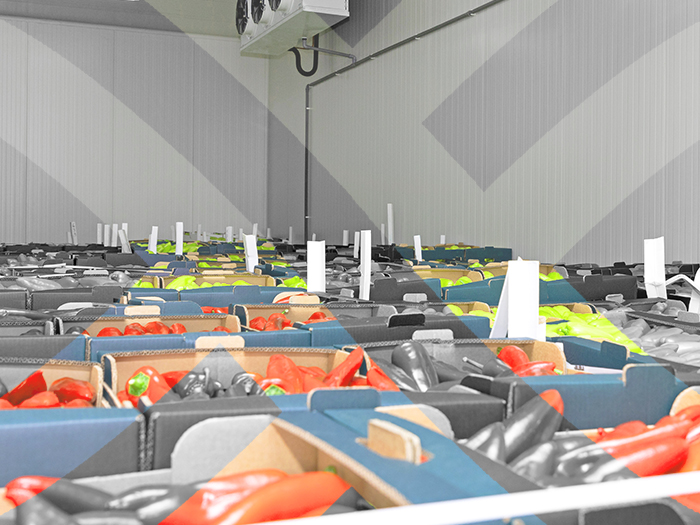News
better business decisions
Posted 4 years ago | 4 minute read

WRAP toughens carbon reduction targets for food industry
Environmental charity WRAP has announced revised carbon reduction targets that would help achieve more sustainable management along the food chain.
The Courtauld Commitment 2025 was a ten-year programme on carbon reduction, food waste and water quality, launched by WRAP in 2015. The agreement included more than 90% of UK food industry as well trade bodies, local authorities and NGOs. In an update, published on 20 July, WRAP set out further commitments for the industry up to 2030.
These included a 50% absolute reduction in carbon and greenhouse gas (GHG) emissions associated with food and drink by 2030 (against a 2015 baseline and covering farm-to-fork, including UK and overseas supply chains). The first step, according to WRAP, is for food businesses to better measure and report on their emissions.
The charity noted that many food and drink businesses and industry bodies have been already setting either net zero targets, or carbon reduction targets for their own operations, but WRAP urged them to address emissions across their entire value chains. Measuring and reducing Scope 3 emissions – which mostly arise during the production of raw materials – is a daunting challenge. But it argued that businesses increasingly recognise the need to work together. The Courtauld Commitment provides a practical, collaborative framework to do so.
To support the industry, WRAP has pledged to work on developing a standardised carbon accounting and reporting methodology, a common set of greenhouse gas emission factors for different foods, ingredients, production systems and geographies and the forward path for more systematic ways of collecting (and verifying) data along the supply chain. Alongside this, WRAP is convening a cross-industry and government panel to tackle current and future data challenges. In the short term, this means more consistent average factors, and in the longer term, more primary data.
Mark Davis, GridBeyond’s Managing Director UK & Ireland, said:
“A commitment to a 50% reduction in carbon emissions from the UK food sector, especially relating to Scope 3 emissions is most welcome. Many businesses are mandated to report on emissions already, but increasingly companies are cascading their environmental standards to suppliers and making them part of qualification criteria. In addition, increased environmental awareness from the public is influencing purchasing decisions so reducing carbon will be key to future competitiveness.
“GridBeyond works with food businesses to optimise their entire energy strategy. From flexible procurement and energy resilience measures, to simplifying the process of capturing, monitoring and reporting on energy use and emissions. GridBeyond can help business find opportunities in energy usage for savings, revenues, and sustainability, while supporting the UK’s transition to a net zero economy.”
Client Spotlight

Brakes group partnered with GridBeyond over 5 years ago to deliver a leading energy demand management solution that enabled them to optimise their power usage across 19 sites in the UK.
“GridBeyond’s platform connects our facilities to National Grid, manages and monitors our energy for programme participation, and delivers us a monthly revenue without impact on our operations”
Steve Webster Category Purchasing Manager, Brakes Group
Project Facts
- 610,000 sq. foot over 19 sites
- 3MW participating assets
- Annual project returns of over £300k
Brakes Benefits
- Unlocked Revenue Stream
- Reduced Carbon Footprint
- Future Proofed Flexibility
- Energy monitoring & reporting
- Fully Financed Installation
- Installation with no cash outlay, and no upfront cost.
- No Risk To Operations
- Enhanced site resilience
Read more about how we have supported Brakes to boost sustainability and profitability – https://gridbeyond.com/lp/client-spotlight-brakes-group/
Our services for the food industry
Using AI and Robotic Trading combined with the expertise of our trading experts and Data Scientists, GridBeyond’s Point Ai. Services open the door for your business to take your energy strategy from passive purchasing and consumption to predictive analysis and active energy management and trading. GridBeyond’s Point Ai. Services consist of three complementary products: Ai. Terms, Ai. Trade & Ai. Thrive, which together, will transform your energy into opportunity.

If you have any questions around the potential for your business, contact our team, or to learn more about the complimenting services offered by GridBeyond’s intelligent energy platform, our Point Ai. Services brochure.
Notes
Different scopes of GHG emissions have been defined by the GHG Protocol and are commonly used terms.
- Scopes 1 and 2: include any GHGs that are emitted directly in a business’ own operations (such as process emissions, fuel for heating/transport, and refrigerant gases), or through electricity consumed.
- Scope 3: includes any GHG emitted in the production and supply of ‘purchased goods’ (such as raw materials, ingredients, products, and packaging), as well as the use of products and management of any wastes.







